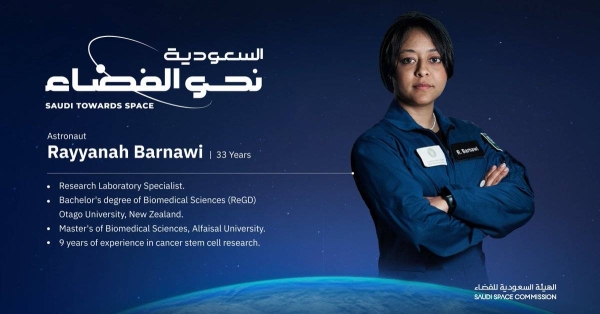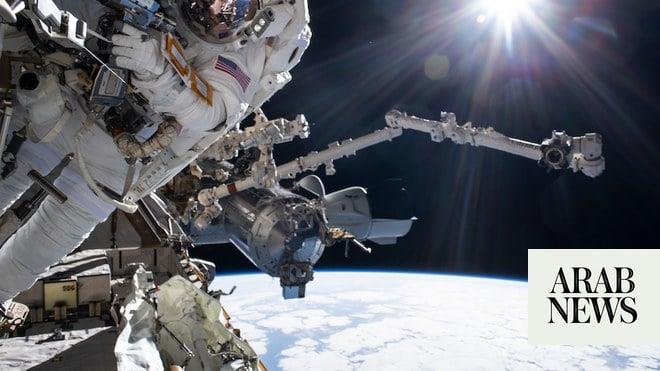
RIYADH — Heralding a giant leap on the horizon of its nascent space science industry, Saudi Arabia is sending its first female astronaut to space within a couple of months.
The 33-year-old Rayyanah Barnawi is set to embark with fellow astronaut Ali Al-Qarni for the space expedition along with the crew of the AX-2 space mission.
The monumental flight to space will take off from the United States to the International Space Station (ISS). Along with Barnawi and Al-Qarni, astronauts Mariam Fardous and Ali Al-Gamdi will also be receiving training on the mission as part of the Saudi Space Commission’s ambitious spaceflight program.
With immense pride and jubilation, many social media users, especially Twitteratis reacted to the landmark decision by hashtag #Towards_Space, congratulating Barnawi and Al-Qarni. They emphasized that sending this team to the International Space Station is a quantum leap and the culmination of the space strategy launched by Crown Prince and Prime Minister Mohammed Bin Salman in 2022.
Barnawi is a young laboratory specialist who has vast experience in the research of cancer stem cells. She is currently working as a research and laboratory specialist. Holder of bachelor’s degree in reproductive science, genetic engineering and tissue development from the University of Otago in New Zealand, she obtained her master’s degree in biomedical sciences from King Faisal University. She has nine years of brilliant experience in the field of cancer stem cells research.
Saudi Arabia announced on Sunday that it will be sending the first Saudi female astronaut Rayyanah Barnawi and male astronaut Ali Al-Qarni to the ISS during the second quarter of 2023.
The spaceflight is scheduled to launch from the USA to the International Space Station. In addition, the Saudi Human Spaceflight Program includes the training of two more astronauts — Mariam Fardous and Ali Al-Ghamdi — on all mission requirements.
The space mission aims to empower capabilities of Saudi scientists in human spaceflight geared towards serving humanity and benefiting from the promising opportunities offered by the space industry, as well as contributing to scientific research in many aspects such as health, sustainability, and space technology.
Through this program, the Kingdom seeks to activate scientific innovations at the level of space sciences, enhance its ability to independently conduct its own research that will reflect positively on the future of the space industry and the country as well.










